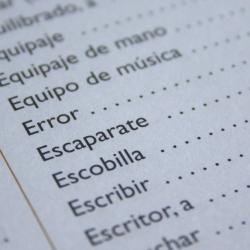How to Start Learning a New Language as a Hobby
Learning a new language is an enriching hobby that not only provides personal satisfaction but also opens up a myriad of cultural, social, and professional opportunities. Whether you want to travel with ease, connect with people from different cultures, or keep your brain sharp, picking up a new language is an exciting venture. Here’s how to get started on this rewarding journey.
1. Choose the Right Language
The first step in learning a new language is deciding which one to learn. This choice should be based on your interests and goals. Consider factors like:
- Personal Interest: If you have a lifelong fascination with French cinema, choosing French might keep you motivated.
- Cultural Connection: Perhaps you have heritage in a particular country or region and want to connect more deeply with your roots.
- Utility: If you aim to use your language skills for work or travel, consider languages that are widely spoken or important in your field.
By choosing a language that excites you, you’re more likely to stick with it over the long term.
2. Set Clear Goals
Once you’ve chosen a language, set clear, achievable goals. Do you want to be fluent, or are you aiming simply to hold basic conversations? Setting specific goals, such as “I want to be able to order food in Spanish by the end of the month,” can help focus your efforts and provide a sense of accomplishment.
3. Find Resources
With your language selected and goals set, gather resources to begin learning. There’s no shortage of tools available for language learners today:
- Apps: Platforms like Duolingo, Babbel, and Rosetta Stone offer interactive lessons you can do anywhere.
- Websites: Websites such as Memrise or FluentU provide unique approaches to language learning through multimedia.
- Books: Invest in a good textbook or phrasebook to guide your learning.
- Online Courses: Websites like Coursera and Udemy offer structured, often comprehensive courses.
- Language Exchange Partners: Websites such as Tandem or HelloTalk can help you practice with native speakers.
Choose resources that match your learning style, whether you prefer structured courses, visual aids, or interactive speaking exercises.
4. Develop a Routine
Consistency is key to language learning. Develop a regular study schedule that includes daily practice, even if it’s just for 10-15 minutes a day. Consistent, small efforts can lead to substantial progress over time. Remember, frequency is more important than duration.
5. Practice Regularly
Language learning involves constant practice. Utilize different methods to increase exposure to the language:
- Audio-Visual Content: Listen to music, watch films, or streams in the target language.
- Reading: Start with simple texts, such as children’s books or news articles, and gradually progress to more complex materials.
- Speaking: Practice speaking often. If you don’t have anyone to speak with, talk to yourself or use language learning apps that focus on speaking skills.
- Writing: Keep a journal or write short essays in your new language to practice writing.
6. Immerse Yourself
Whenever possible, immerse yourself in the language. This doesn’t necessarily mean moving to another country. Instead:
- Label Household Items: Label everyday objects in your home with their names in the new language.
- Social Media: Follow accounts, join groups, or subscribe to pages that post in your target language.
- Events & Meetups: Attend local language meetups, online language exchange meetups, or cultural events.
Immersion helps you think and operate in the language naturally and improves your proficiency over time.
7. Be Patient and Persistent
Language learning is a marathon, not a sprint. It involves persistence, patience, and a positive attitude. Celebrate your milestones and don’t be discouraged by setbacks.
8. Embrace Mistakes
Mistakes are an essential part of learning. Instead of fearing them, embrace them as opportunities to improve. Every error made and corrected is a step toward mastery.
Conclusion
Starting to learn a new language as a hobby can be a hugely rewarding pursuit. It requires commitment, but the benefits, personal growth, and enjoyment far outweigh the challenges. By setting clear goals, utilizing a variety of resources, and immersing yourself in the language, you'll find joy in each new word and phrase you master. Whether for travel, work, or pleasure, learning a new language opens a world of opportunities. So why wait? Begin your linguistics adventure today!






















